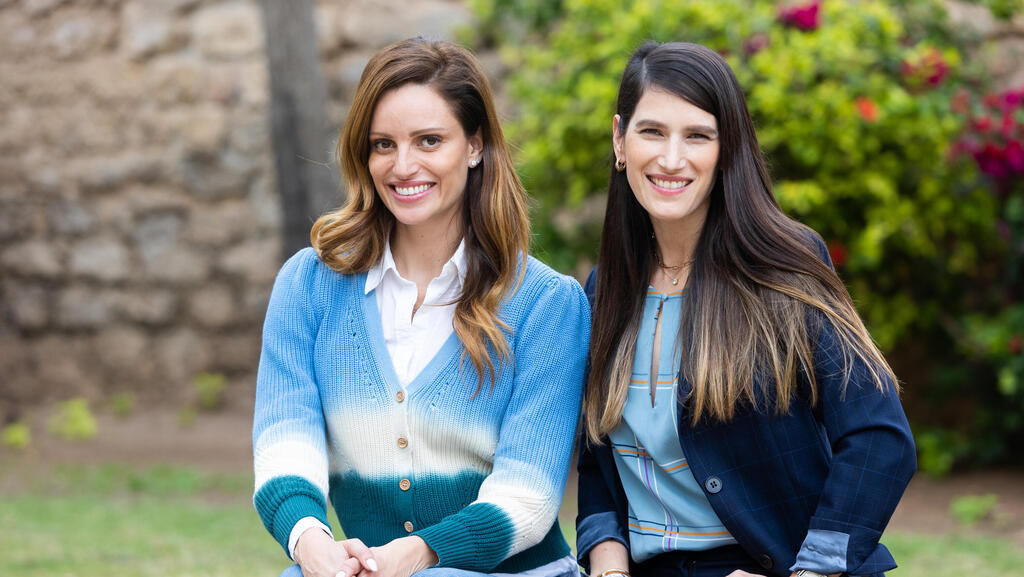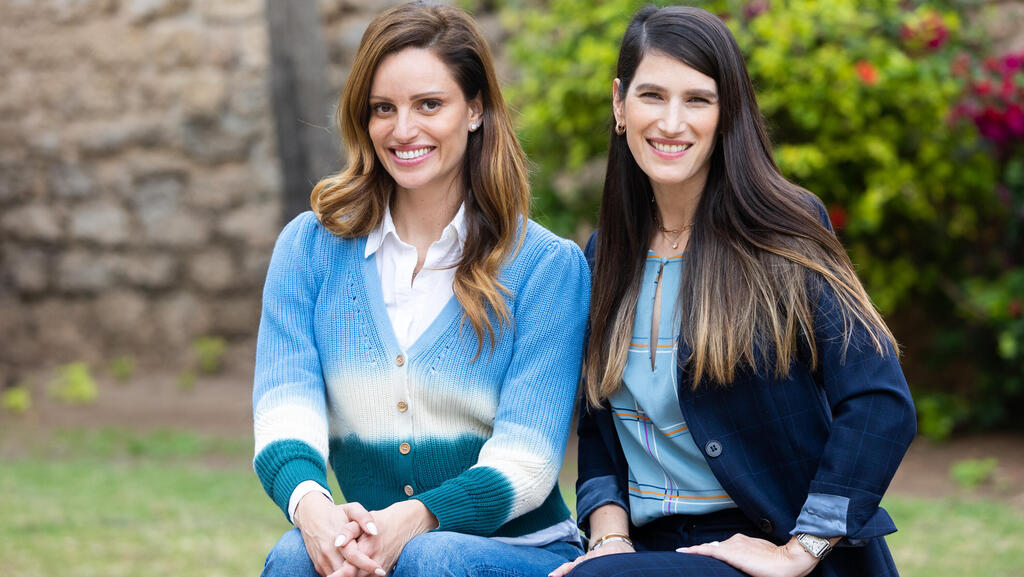
She-VC
“Our philosophy is that a woman shouldn't have to give up on anything to pursue her career”
Shelly Hod Moyal and Mor Assia, Co-CEOs and founding partners at iAngels, tell their story of support, motherhood, and the advantages of diversity
Speaking with both Shelly Hod Moyal and Mor Assia, Co-CEOs and founding partners at iAngels, proved to be a fairly easy task. Neither spoke over the other and they easily found a pace that worked for both of them, even though the call was through Zoom and people have a tendency to barge into each others' sentences on the platform.
The two first met in the United States at a meetup for young professionals, the type in which you go around the room and everyone introduces themselves. Hod Moyal recalls: “When Mor told her story and I heard she was a prima ballerina (before she had her five kids) my jaw dropped. I decided to go straight over to her after the meeting and tell her we have to be friends. The rest is history."
Hod Moyal, a mother of four children, grew up in Israel, and upon finishing her army service moved to the United States where she studied philosophy and economics. “I was not sure what to do, but I knew I wanted to be in investing. I began my career as a financial advisor at UBS, helping build investment portfolios." Then, during the crisis in 2008, Hod Moyal moved to a position at a distressed debt hedge fund. “I remember my first professional mentorship was with a woman that came from Lehman Brothers to assist financial companies in distress, which in 2008 was new for banks. I met her in the bathroom and I asked her if she needed help as she didn’t have an associate. She was nine months pregnant at the time and two weeks after she arrived she gave birth and returned to the office two weeks later. She was alone and had a ton of work to do so she needed me. After hours, I would build excel sheets and models, she took me under her wing and taught me about investments."
Two years later, Hod Moyal returned to Israel following a personal tragedy. “It made me realize that life is short and I need to be close to my family. When I returned, I worked at Goldman Sachs until I opened iAngels with Mor.”
Assia also grew up in Israel and comes from a tech and business background. Following her army service in unit 8200 she completed her BA in math and computer science at the Technion Institute of Technology. She then proceeded to work as a software engineer in SAP for four years. “After SAP I flew to the United States to do my MBA at Columbia, I wanted to focus on strategy and technology. I worked for IBM as part of their strategy team. However, when my first son was born I came back to Israel."
Upon her return, she worked for Amdocs for two years before deciding to spread her wings. “That is when I called Shelly, she was my go-to girl and good friend, someone I appreciated.”
The two founded iAngels in 2013, literally in Hod Moyal’s basement with their babies. As entrepreneurs, they wanted to build a different model where they would create an infrastructure for many LP’s. “We would find companies and interesting deal flows and because we knew the hardships of international investors lacking an insider view we wanted to be their liaison for the Israeli market. We have thousands of LP's in our investor base and 25 successful exits."
In 2019, iAngels also grew into a classic fund, and currently manages over $400 million alongside their original venture. “We have multiple funds and multiple vehicles for investment," added Assia. "We have a diverse investor base from over 60 countries where everyone is different and looking for different things.”
CTech's She-VC series follows the stories of various female partners and senior managers in venture capital funds in Israel. Only 16% of partners in Israeli venture capital firms are women, and only 9% are investing partners. This poses a liability regarding how many female founders will be able to receive investments and it speaks to the industry as a whole.
“At iAngels, part of our philosophy is that a woman shouldn't have to give up on anything to pursue her career.” Assia explains. “We make an effort in our personal and professional life to empower and enable that. Over the years, we hired and employed women and supported them in building themselves as professionals and as mothers. It is an important part of our own story as partners, enabling each other to shine and to accomplish our personal and professional aspirations together.
“For a woman everything needs to happen in parallel, which is a big undertaking and also comes with a lot of risk. If you let go of your career and focus on your family you can’t jump back on the career bullet train and if you want a family later on in life, you can't do that without a lot more risk. For those who want both, we need to do it at the same time, you can't jeopardize either."
The two spoke about being leading women in a male-dominated industry and the hurdles they had to overcome. “I feel that it's one of the biggest things that pushed me to be who I am today. I remember my father telling me that if this is what I want to do, I should know that I will hit a glass ceiling. Then, when I got there, I saw that it really was not as rosy as I wanted it to be," said Assia.
Hod Moyal noted what she believes is one of the main reasons for the lack of women in the sector. “It's natural and easier to build relationships within a gender than between genders. When I meet an investor for the first time I need to think twice before I go out with them socially. Whereas when two men meet it makes more sense, making it more difficult to build professional relationships. When Mor and I started out we realized there aren’t a lot of us out there. It is what drove us to build a diverse company at iAngels."
What did you learn from your journey?
Hod Moyal answered first. “I learned that the saying ‘it takes a village’ is true also in business, you can't do it alone. Startups fall apart because of the partnerships. Surround yourself with people that lift you up, that reciprocate feedback. One of the reasons we want diversity is not just to help others, it is because it makes our organization better. People that come with different experiences are less prone to groupthink, which is a negative effect of homogeneous groups. We have two ultra-Orthodox women employees. Both are engineers, one has eight kids and the other has five. We also helped build Kamatech, a self perpetuating network of working religious Jews, which aims to facilitate their successful integration into the Israeli workforce. 25% of our portfolio have women leaders and founders and three out of our seven most valuable companies have female founders.”
Assia chimed in after Hod Moyal displayed their impressive statistics, stating: “At any given time our fiduciary is to maximize our performance and always look for the best entrepreneurs, keeping us more open to accepting diverse founders. It is a part of a bigger conversation that is happening in Israel at the moment and we feel it is part of our DNA. The diversity in our portfolio is not dissimilar to our LP base, which is very diverse, meaning, it is inherent in our strategy and flows to our entrepreneurs. It really is a mindset.
Related articles:
“Women are smart and capable and it's inspiring to see them step up," Assia said. "We mentor them and help them even before they are in the news and that is important. It's a turbulent road and we need to always remember to never regret what we chose to do. Without that you won't be open for the next opportunity. Everything that was supposed to happen brought you to where you are today. We need to welcome the challenges. Women can take risks.”
